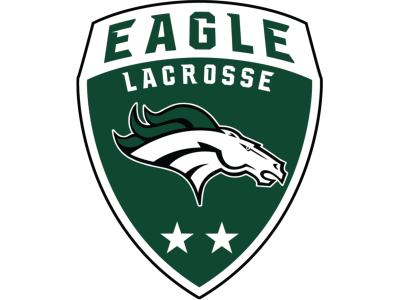Concussion Resources and Education
EHS Men’s Lacrosse is proud to partner with St. Luke’s Sports Medicine Concussion Clinic to offer access for students, parents, coaches, and community members protocol and resources to keep everyone educated and safe in regards to concussions in youth sports.
If you suspect that you've sustained a concussion, or for more information regarding concussion, please contact the Concussion Clinic at 208-381-2665 or email them at concussion@slhs.org.
Resources for Parents
Resources for Athletes
Resources for Coaches
Resources for School Resources
IDAHO CONCUSSION LAW
TITLE 33
EDUCATION
CHAPTER 16
COURSES OF INSTRUCTION
33-1625. YOUTH ATHLETES — CONCUSSION AND HEAD INJURY GUIDELINES AND REQUIREMENTS. (1) The state board of education and the Idaho high school activities association shall provide access to appropriate guidelines and information that identify the signs and symptoms of a concussion and head injury and describe the nature and risk of concussion and head injury in accordance with standards of the centers for disease control and prevention through a link on the internet website of the board and the Idaho high school activities association.
(2) This section shall apply to any middle school, junior high school and high school in the state participating in or administering an organized athletic league or sport. For the purposes of this section, "youth athlete" or "athlete" means an individual who is eighteen (18) years of age or younger and who is a participant in any middle school, junior high school or high school athletic league or sport.
(3) At the beginning of each sports season before a youth athlete participates in any organized practice or game, the youth athlete and the youth athlete’s parent or guardian shall receive the guidelines and information described in subsection (1) of this section from the school for which the athlete plays, and shall review the guidelines and information. Coaches, referees, game officials, game judges and athletic trainers shall review such guidelines and information upon employment and biennially thereafter.
(4) Schools shall obtain written consent from the youth athlete’s parent or guardian on an annual basis attesting to the fact that the youth athlete’s parent or guardian has received a copy of the concussion information and guidelines as outlined in subsection (3) of this section, acknowledges the inherent risk and authorizes the youth athlete to participate in athletic activity.
(5) If during a practice or game or competition, it is reasonably suspected that a youth athlete has sustained a concussion or head injury and exhibits outward signs or symptoms of such, as defined by the centers for disease control and prevention, then the youth athlete shall be removed from play. Every Idaho middle school, junior high school and high school that participates in or offers an organized athletic league shall develop protocol to be followed for removing such athletes from play. Such protocol shall be consistent with concussion and head injury guidelines of the centers for disease control and prevention.
(6) An athlete may be returned to play once the athlete is evaluated and authorized to return by a qualified health care professional who is trained in the evaluation and management of concussions. For the purposes of this section, "qualified health care professional" means and includes any one (1) of the following who is trained in the evaluation and management of concussions:
(a) A physician or physician assistant licensed under chapter 18, title 54, Idaho Code;
(b) An advanced practice nurse licensed under section 54-1409, Idaho Code; or
(c) A licensed health care professional trained in the evaluation and management of concussions who is supervised by a directing physician who is licensed under chapter 18, title 54, Idaho Code.
(7) Students who have sustained a concussion and return to school may need informal or formal accommodations, modifications of curriculum, and monitoring by medical or academic staff until the student is fully recovered. A student athlete should be able to resume all normally scheduled academic activities without restrictions or the need for accommodation prior to receiving authorization to return to play by a qualified health care professional as defined in subsection (6) of this section.
(8) If an individual reasonably acts in accordance with the protocol developed pursuant to subsection (5) of this section, then acting upon such protocol shall not form the basis of a claim for negligence in a civil action.
(9) Any youth sport organization or association in this state may comply with this section. If a youth sport organization or association is in full compliance with this section, then the youth sport organization or association shall be afforded the same protections from liability in a civil action pursuant to subsection (8) of this section.
History:
[33-1625, added 2012, ch. 299, sec. 2, p. 820; am. 2016, ch. 293, sec. 1, p. 822.]
